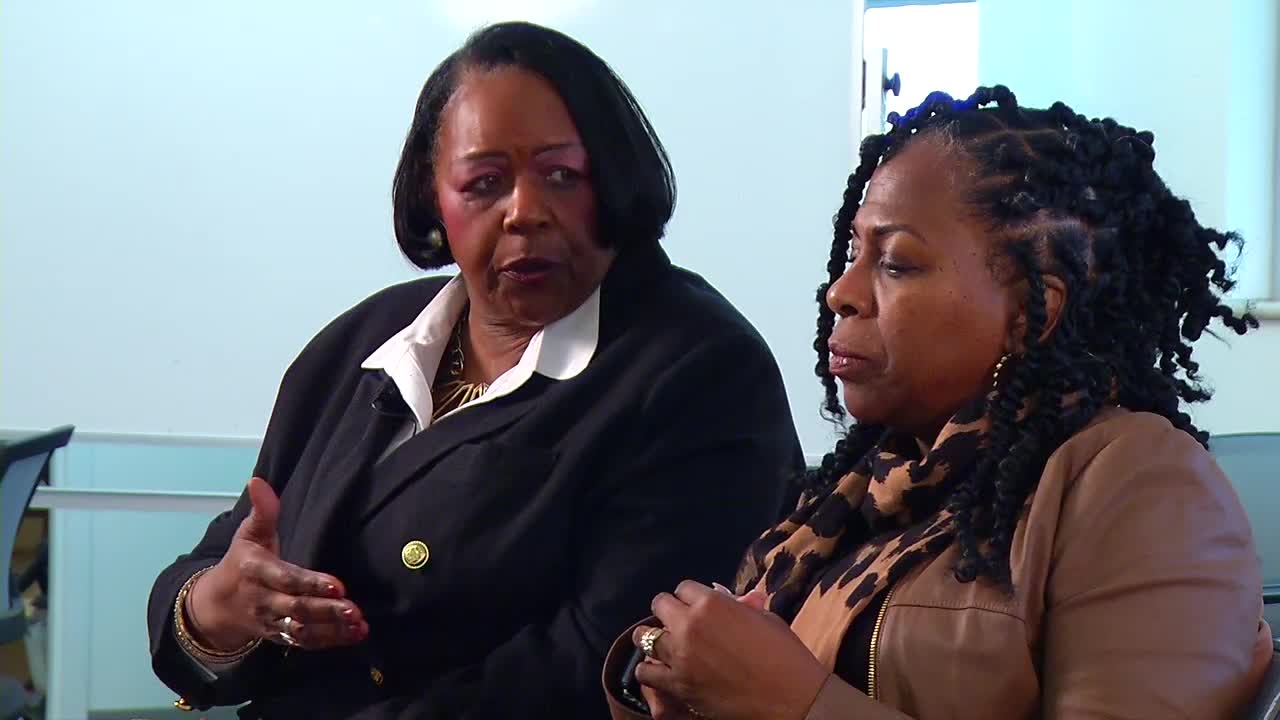Minneapolis program that rehabilitates gun offenders looks to broaden footprint
[anvplayer video=”5149219″ station=”998122″]
The leaders of a Minneapolis gun diversion program are hoping to expand resources to the community after six years of success.
The nationally recognized program is only accessible to eligible offenders, but the co-founders are hoping to secure grant funding to make the initiative available to the public.
A recent graduate explained the program gave him a second chance at life.
“I’m from a place where nobody really cares about you,” said Christian Benson, program graduate.
Benson grew up on the North Side of Minneapolis. He said his childhood was cut short and his environment forced him to grow up quickly.

Urban Ventures program director Priscilla Brown, left, and Well Spring Second Chance Center CEO Deseria Galloway are the co-founders of the Pathway Gun Diversion Program. (KSTP)
“It got really dangerous as I was growing up,” he said.
The 35-year-old said gun violence shaped his life. A close friend was shot and killed at a young age and at that moment, things changed.
“Once he was killed, I saw things differently,” Benson said. “So it went from fist fighting to now you got to pick up a gun.”
Benson said he was headed down the wrong path.
In 2019, Benson faced two charges. One of them was a misdemeanor gun possession charge.
He didn’t have a prior record, which made him a candidate for the Pathways Gun Diversion Program.
“For nine months, we hold them accountable. We want to restructure and redirect their thinking. Why in the first place did you have a gun?” said Deseria Galloway, CEO of Well Spring Second Chance Center. “The only way we’re going to make this change is getting to the heart of the issue.”
Galloway and Urban Ventures program manager Priscilla Brown — who both have backgrounds in social work and therapy — partnered with the city of Minneapolis and created the program six years ago.
The classes are taught by licensed social workers and mental health professionals that discuss topics ranging from healing to controlling emotions.
The founders explained people of color often end up in the program because of decisions fueled by trauma.
“It’s not, ‘What’s wrong with you?’ but ‘What happened to you?’ We need to hear what happened,” Brown said. “We understand where the line is drawn, that it might be difficult, but you have to open yourself to be challenged in order for you to allow yourself to be healed from the pain.”
When students graduate, their records are expunged of the misdemeanor gun possession conviction if they don’t reoffend within a year.
The program has gained a 76% success rate, meaning only 24% reoffended.
“I felt like I was somebody in their program. I knew every Thursday I was going to talk to a group of people that cared about me,” Benson said.
Benson said the program reshaped his thinking. He explained he’s more patient. He said he’s been at his job for about a year now and just welcomed a baby boy.
“They changed my life. If it wasn’t for this program, I wouldn’t be sitting right here right now,” Benson said.
The city of Minneapolis is investing in the future of this program. Earlier this year, they increased funding by nearly $500,000 and extended the program through 2025.
If you are using the KSTP app, you can view the video here.